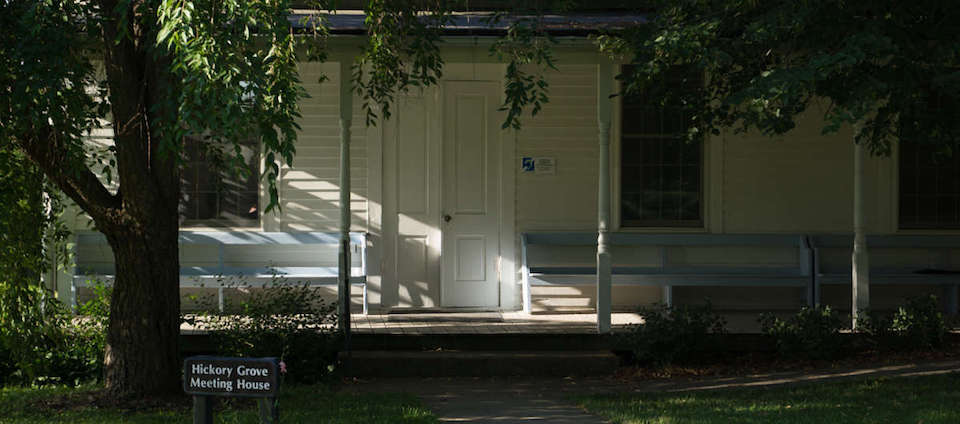Peacemaking is a slow, every day process. It requires us to over and over again show up, be present, listen, build trust, work together and work through. It is not shiny or exciting, but creates an underlying foundation upon which we can build the world we envision. At Scattergood we give young people the chance to understand the slow work of making peace by not only learning about themselves, but also by learning to live with each other in community. This may be the most difficult practice of all, but it is a crucial skill for them to cultivate in these divisive times.
The current picture:
Development efforts are improving with increased alumni outreach, involvement, and giving. Thomas Weber and Ruth Hampton have hosted alumni gatherings in various parts of the country and we see results. The school’s current financial reporting is dependable, giving an accurate picture of our finances. These reports reveal a budget where money is frugally and wisely spent. Thomas has worked hard at guiding the business office through changes and the school has survived the past few years of low enrollment because of good management and extensive effort and sacrifice by the staff to reduce costs. Through very tight budgeting and some extraordinary help from the Foundation, we have met our budget last year. However, this performance is not sustainable.
The frustrating anomaly is that enrollment is so low when the school’s programs are so robust. The academic programs are exceptionally creative, including integration of the farm into the curriculum and project based learning; students are excelling in college preparation. The residential program is healthy and Quaker values continue to guide us: the students are encouraged to explore their spiritual path, crews develop skills and provide them with a sense of community belonging, and they are given leadership roles in managing residential life. The innovations in the academic and residential programs of the past few years have been initiated by the Head and the staff, and their latest efforts are focused on identifying new strategic initiatives.
Our assessment:
We have witnessed an influx of energy, ideas, creativity, and optimism from the staff and Head that resonates within us, gives us confidence for the future, and the courage to change and evolve. For this we are grateful because simply carrying on with what we have been doing is not an option. We, like most residential high schools in the US, are experiencing difficulties with enrollment, a result of shrinking middle class and a change in parenting styles. Further, the political climate nearly eliminates our ability to bring in international students, who have always been an important part of the Scattergood culture.
Marketing initiatives implemented in the past year based on the recommendations of an outside marketing firm are visible in the website and other materials are already proving fruitful, but these efforts are not reaching a broad enough audience. With our tight budgets we cannot adequately fund further marketing activities that would help our situation.
Because of low enrollment, for the last several years the school has been unable to generate a sustainable level of revenue. The school is surviving, but this isn’t a long-term solution. It will take a significant investment to implement plans to secure sound long-term footing. Putting appropriate resources into marketing and recruitment can’t be expected to bear fruit in less than 2-3 years, and any substantive initiatives will need up-front funding to launch.
Our recommendation:
The School Committee approved a proposal to increase enrollment and improve our financial condition by pursuing the following initiatives that the school has cultivated. These programs would increase and diversify our income, outreach, and visibility:
1) merit scholarships based on community leadership qualities
2) the development of a middle school for day students of the Iowa City area
3) a gap-year program for under-resourced students admitted to Grinnell College
4) implementation of the marketing plan from Kelsh Wilson
The School Committee asks that the Yearly Meeting give us their support and trust to mortgage up to $800,000 to develop these programs and bolster marketing and admissions for Scattergood’s traditional program while we build the new programs. We believe all of these are consistent with the mission of the school and the work of our Yearly Meeting.
The choice the Yearly Meeting has to make is this: Are we willing to support this plan, trusting that school committee, Head, and staff have done the best job they can to develop a way forward for the school’s future? Without the loan we are fairly certain the school would close, a process that would also require significant funding.
There is certainly risk involved in launching these initiatives. However, utilizing the assets of the school on its future existence seems like the most responsible course of action at this moment in time. The collateral for a loan exists in the land the school occupies. The money borrowed would not jeopardize the Yearly Meeting nor the land. Though the loan would use the property as collateral it would be backed by the existing funds of the Scattergood Foundation, which was established to ensure Scattergood meets its financial obligations. It would provide adequate funding to financially secure the land in a worst-case scenario.
Our struggle to find a way forward for Scattergood Friends School has been difficult but it has also been good: it winnows away the chaff and keeps us true. This labor requires we give our full faith and attention to Scattergood Friends School, what we believe is the Yearly Meeting’s peace-building ministry to the wider world, as it continues to nurture young people who give us hope for the future. The school is greatly needed and, God willing, we will find a way for it to continue and flourish.
On behalf of the School Committee,
Ruth Hampton, clerk
